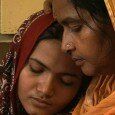By Aamir Saeed –
Notwithstanding the Supreme Court’s directives for identity recognition, the transgender community remains at the receiving end of societal bigotry
Sitting in the lobby of a singleroom rented house, Shazia Chaudhry is desperately waiting for customers inviting her to perform at a wedding or birthday. She has no other source of income. “I am near starvation as I have received no invite for a function in the last one and half months. The government is squandering millions of rupees on different projects but the transgender community is not on their priority list,” she says wistfully. Eunuchs are traditionally paid to help celebrate the birth of a son or dance at weddings, especially in rural Pakistan. However, issues of harassment and humiliation at the hands of drunken spectators are a sad reflection of social discrimination.
The Supreme Court directives to National Database and Registration Authority (Nadra) and other relevant institutions to help improve the lives of the transgender community have paid little. Only 782 members of the transgender community have been enrolled with the Election Commission of Pakistan for the next general elections. It was thought the act would give recognition to the community and enable them to find a new source of income. But Shazia dubbed the exercise futile as a whole since they are still dependent on performing at functions to earn their bread.
“Only 15 to 20 eunuchs have been registered with Nadra after the Supreme Court verdict partly because it does not sit well with the community for a number of reasons,” she says. Elaborating on the registration drive, she says there is no specific need for new computerized national identity cards or CNICs as almost all eunuchs already possess identity cards, registered as male or female. “In the beginning, the government promised a job quota in all public institutions but only half a half dozen eunuchs have been accommodated as data entry operators so far. All the jubilation that came from the Supreme Court verdict has evaporated,” she explains. Shazia leads a group of transgender community and has also been running Moorat Foundation for the last eight years. More than 100 eunuchs are members of the foundation and they come from Lahore and Faisalabad besides Rawalpindi.
Hijras — as they are called in common parlance — were historically castrated at birth and granted a privileged status in the court of the subcontinent’s Mughal Emperors. Their primary call was to entertain the king and his coterie through dance and singing. “Eunuchs are no more a privileged class in Pakistan. They are expelled from their homes and forced to be prostitutes or beg on the roads. Who else will accept us when our own parents and siblings evict us from homes for being the eunuch,” Shazia asks mournfully. However, Dr Farzana Bari, a rights activist and professor at Quaid-e-Azam University, appears optimistic about the future of the transgender community. “The apex court has granted citizenship right to eunuchs for the first time in our history and they will reap benefits of the verdict in the long run.”
Referring to the lack of social acceptability, Farzana says, there is a dire need to create awareness among masses about the issue but unfortunately nobody, including the media is paying heed to the problems the community is faced with. “The state should play its role in making them productive citizens. This can be done by imparting special skills and education,” she suggests. Farzana laments that millions of rupees are squandered on foreign junkets of ministers and other non-productive projects but even female parliamentarians have never asked for some privileges for the much discriminated segment of the society. The Supreme Court in its landmark verdict ordered the government to grant financial assistance to eunuchs from Baitul Maal and Benazir Income Support Programme to stop their exploitation by criminals for money.
The directives are yet to see the light of day. Meanwhile, clad in a black pant and red Tshirt and completely oblivious to the Supreme Court directives, Bunty — she declines to give her real name — is standing alongside the Benazir Bhutto Road (Murree Road) waiting for potential sex-buyers. “Everybody is a champion of human rights here and some of them give long sermons on television screens, too, but nobody has ever approached us to even listen to our problems,” she says. “We were sex workers yesterday and we remain sex workers today.”
However, she is all praise for Shazia Choudhry and Dr Aslam Khaki, the advocate who filed the landmark petition in the Supreme Court, for raising the issues of the community. “We are thankful to the Supreme Court for helping our cause but we need something more than just the issuance of CNICs. We are human beings and have the same basic needs as others; therefore, the government should provide monetary assistance for us,” Bunty says. She is unsparing of Punjab Chief Minister Punjab Shahbaz Sharif.
“He spent billions of rupees to establish Danish schools and Ashiana Housing Scheme for the poor of the province. He also claims to be the best administrator but we continue to be exploited and harassed by the police daily. What has he done for us?” After getting CNICs and being registered with the Election Commission of Pakistan, the transgender community will not only be able to exercise the right to franchise but can also contest election to represent their community in the parliament.
“We are considered a stigma on the face of society and even our parents don’t accept us, what to say of contesting an election. We will vote in the next elections and hope the elected people will create job opportunities for us,” Shazia says. Safe estimates suggest the number of gender confused persons in Pakistan lie between 80,000 and 300,000. Experts say it should not be difficult for the federal or any provincial government to do something viable for such a number. Elaborating on jobs for eunuchs, Nadra chairman Tariq Malik says, some have been created in the department following the Supreme Court directives and a few have been recruited at the authority’s provincial headquarters already.
“We are happy to hire more eunuchs as data entry operators but they appear less inclined. Only a few eunuchs turn out for employment whenever we advertise in the media,” Malik says. May be, as Bunty says, so long as the government, society and public institutions are not sensitized to their plight, they have little choice but to either serve at the pleasure of others or beg to eke out a living.
Parenta l affection keeps me alive, says Shazia
Recounting her school days, she said her teachers used to make her sit with female students while male students cracked jokes about her. “I dropped out of the 8th grade owing to the harassment and also decided to leave home for ever.” She joined a transgender group after leaving studies to learn dance and singing against the wishes of her parents and siblings. “I could not learn singing but became an expert dancer in less than a year. My Guru, Zeba, always admired my attitude and dancing skills.” Shazia has three brothers and two sisters. They are all married and living happy lives.
Is she in contact with them? “I visit them on-and-off but they hesitate to meet me,” she says, eyes welling up. However, Shazia is grateful that her elderly parents visit her after every two to three weeks “Their affection is enough to keep me alive,” she says.
The writer is an Islamabad based reporter































































































